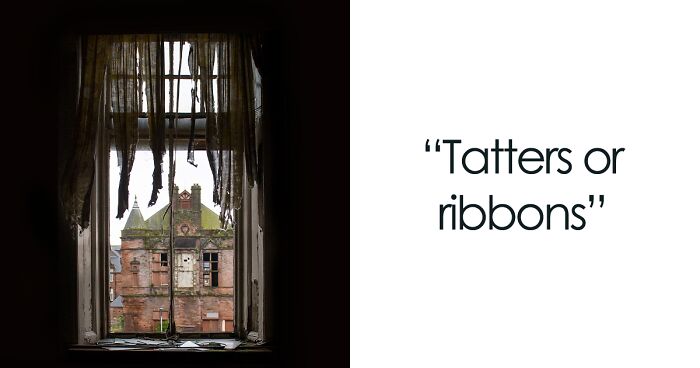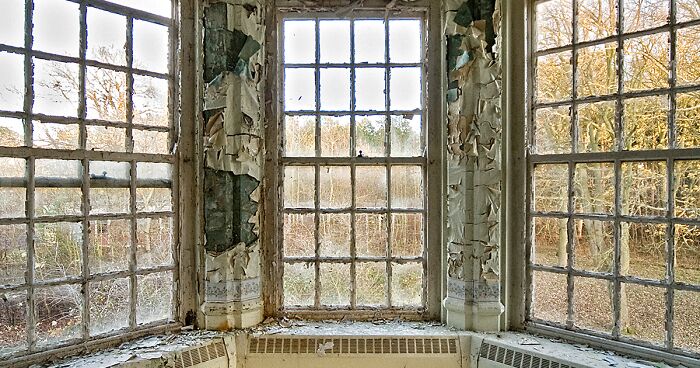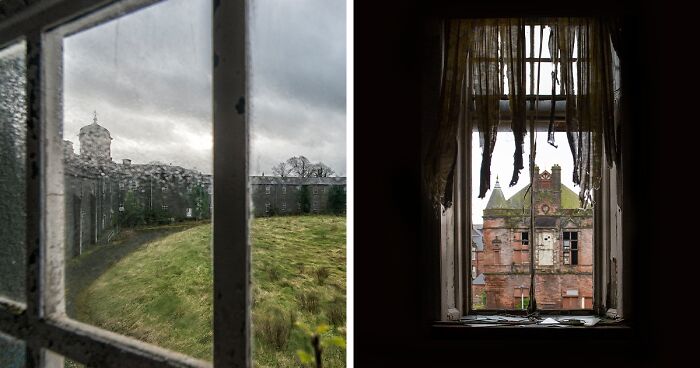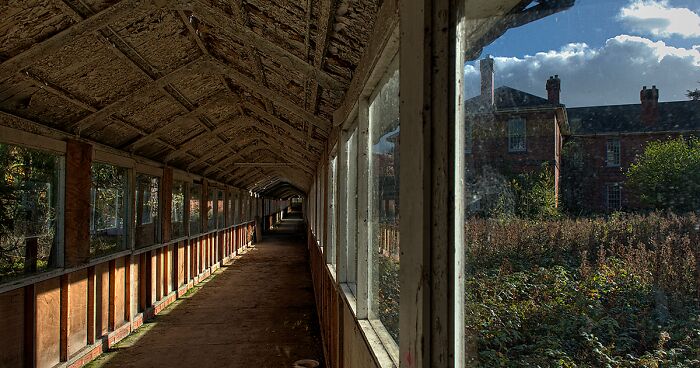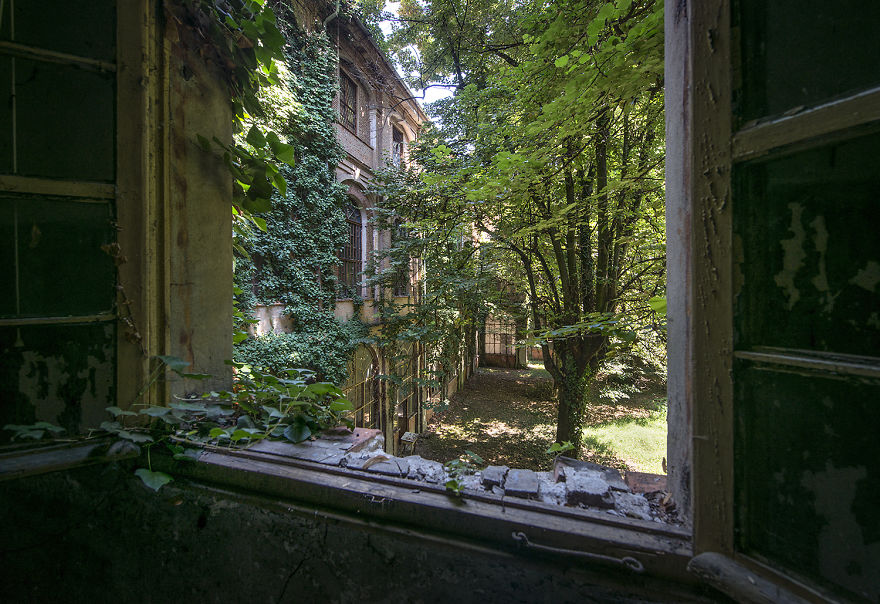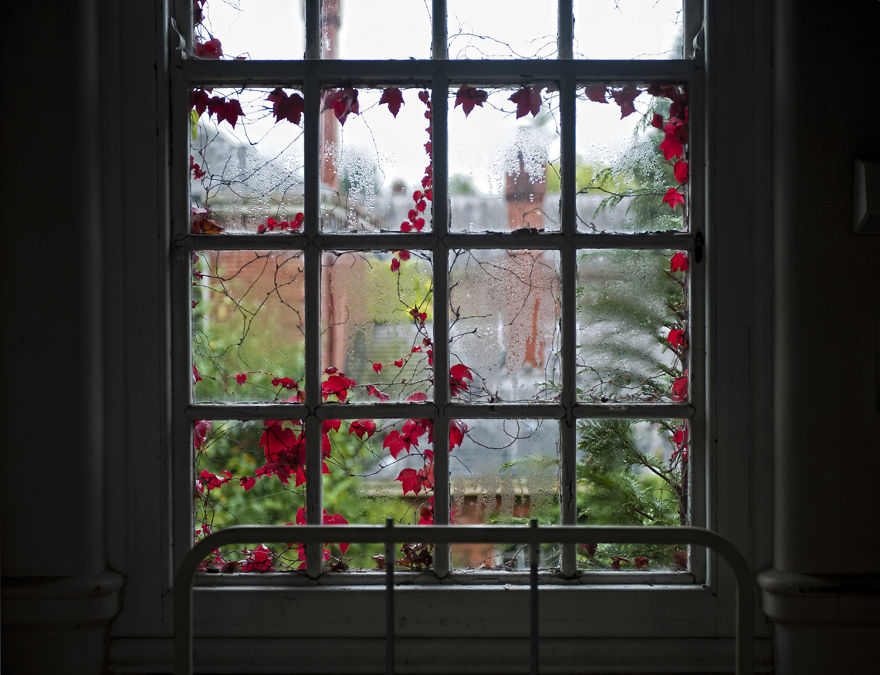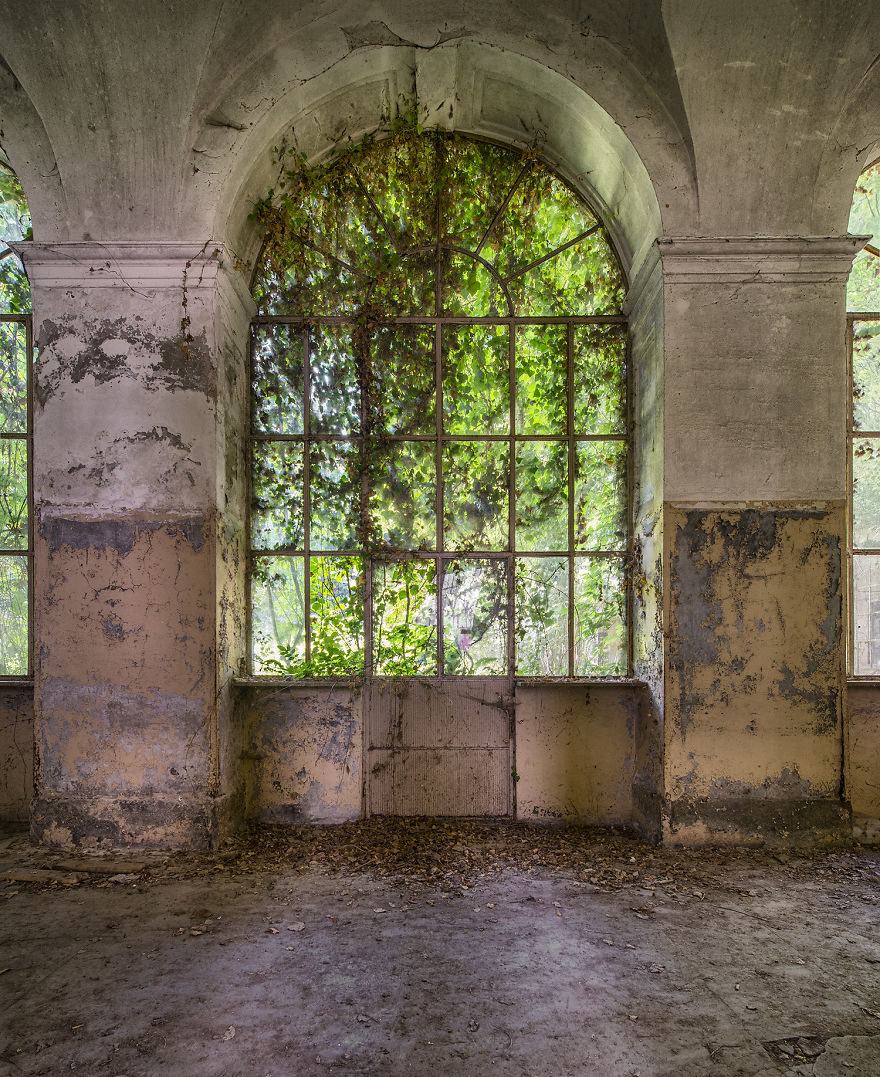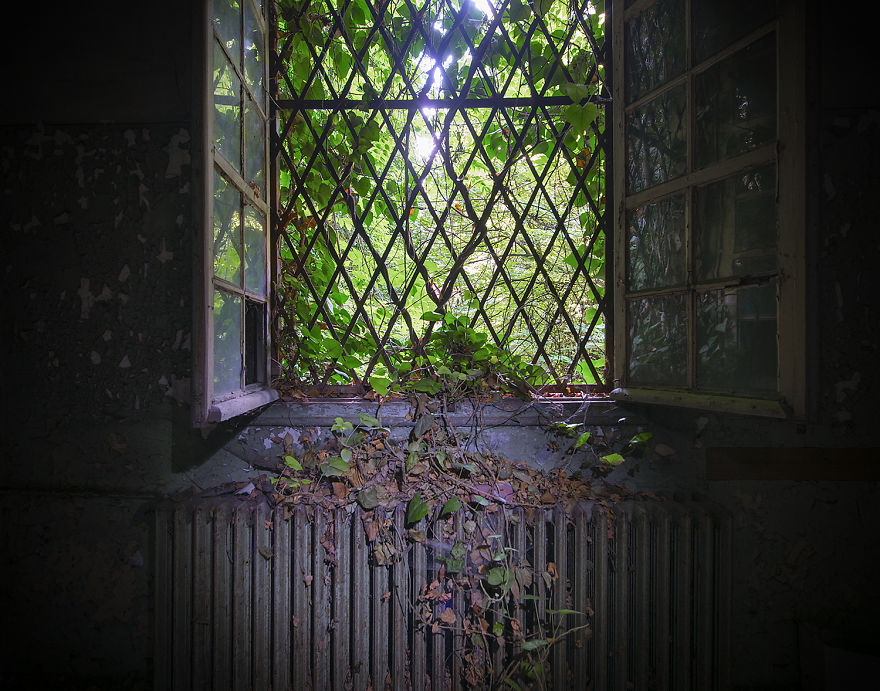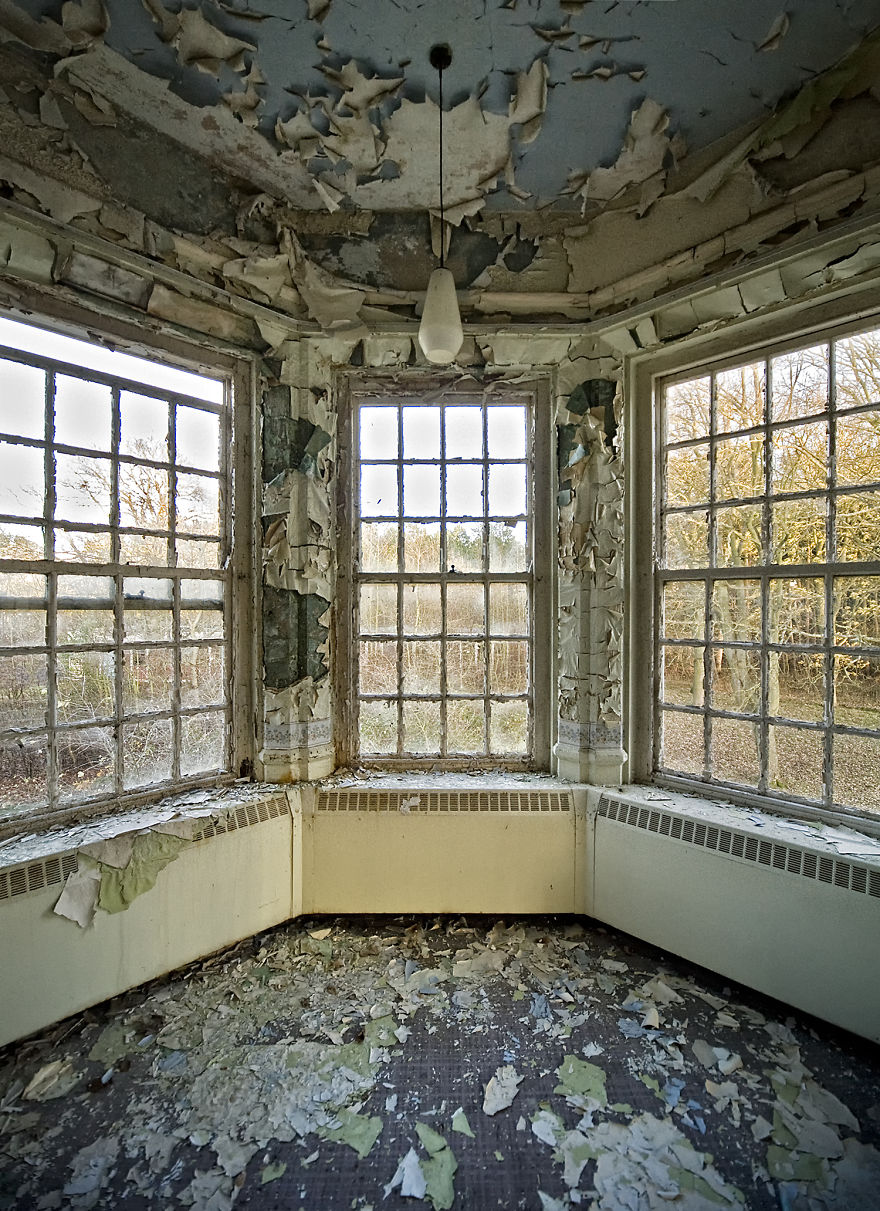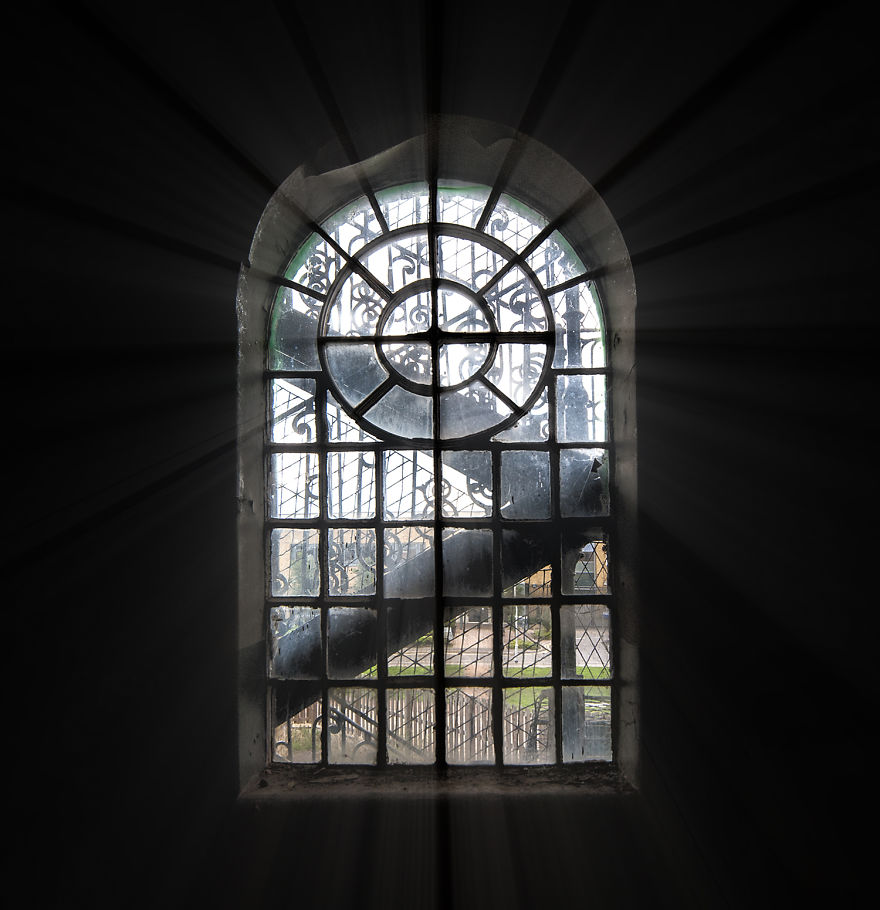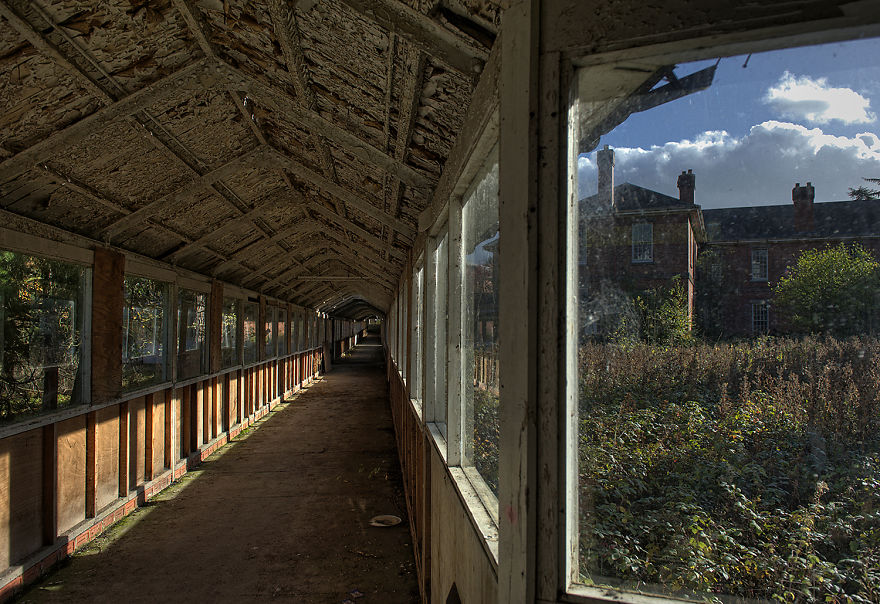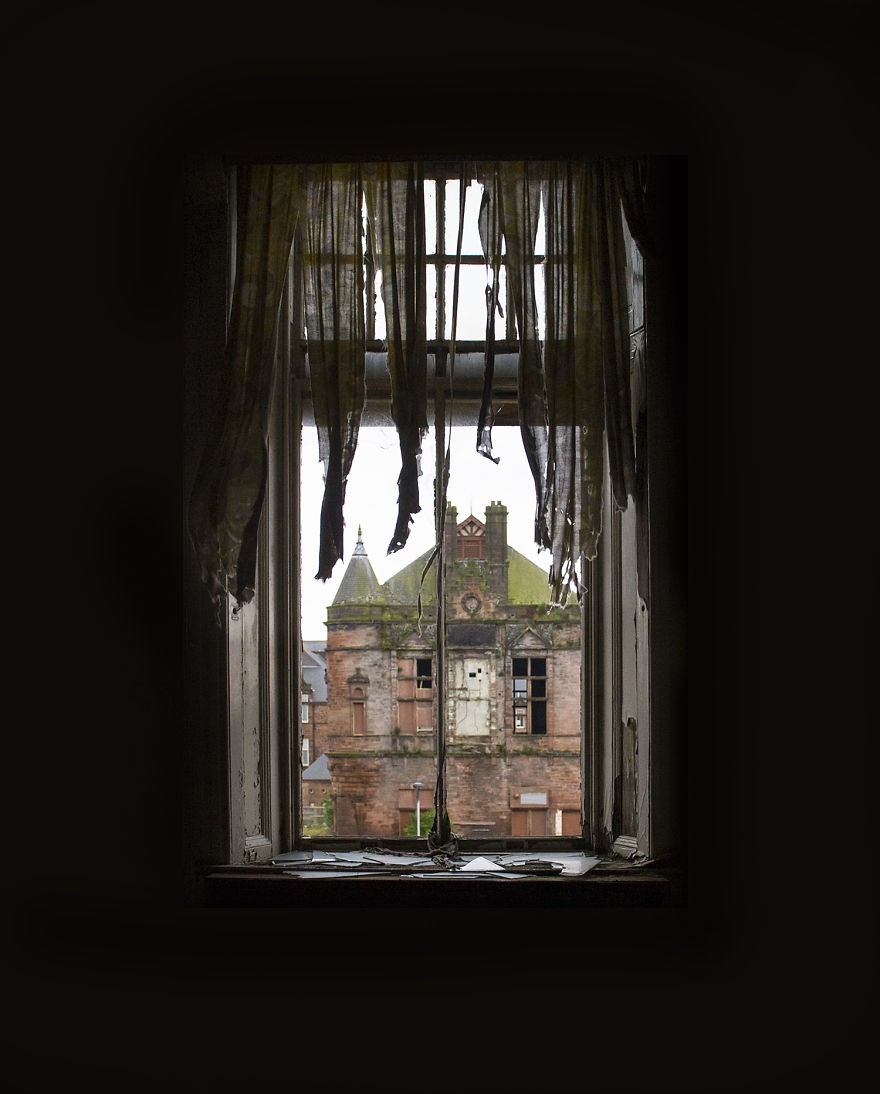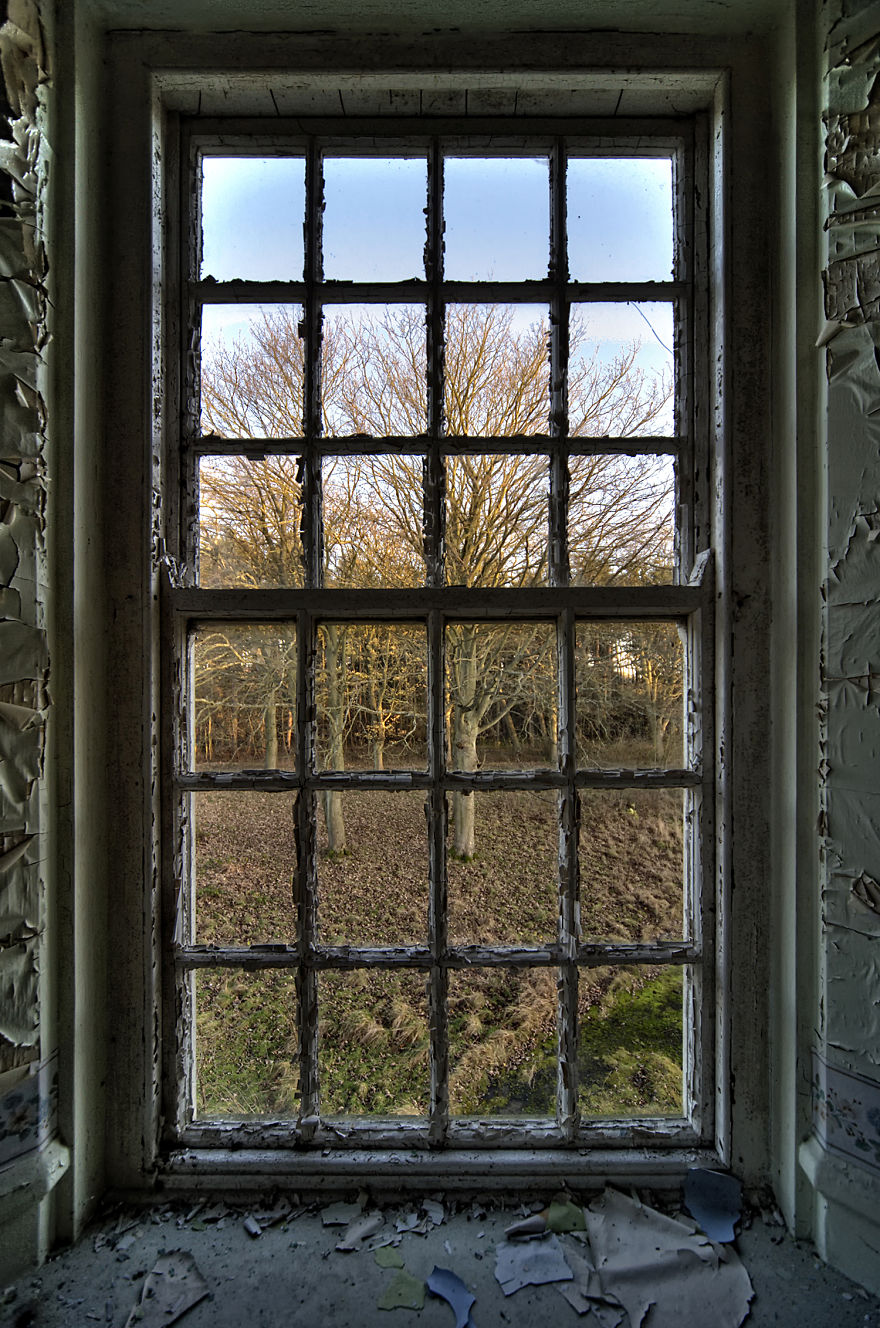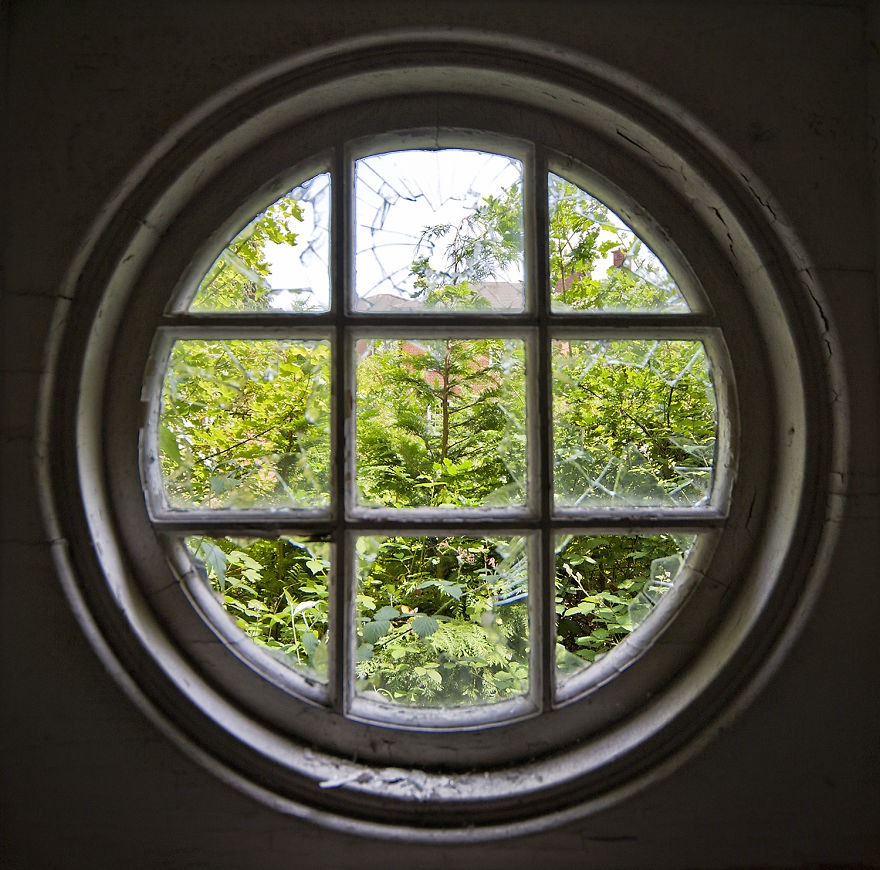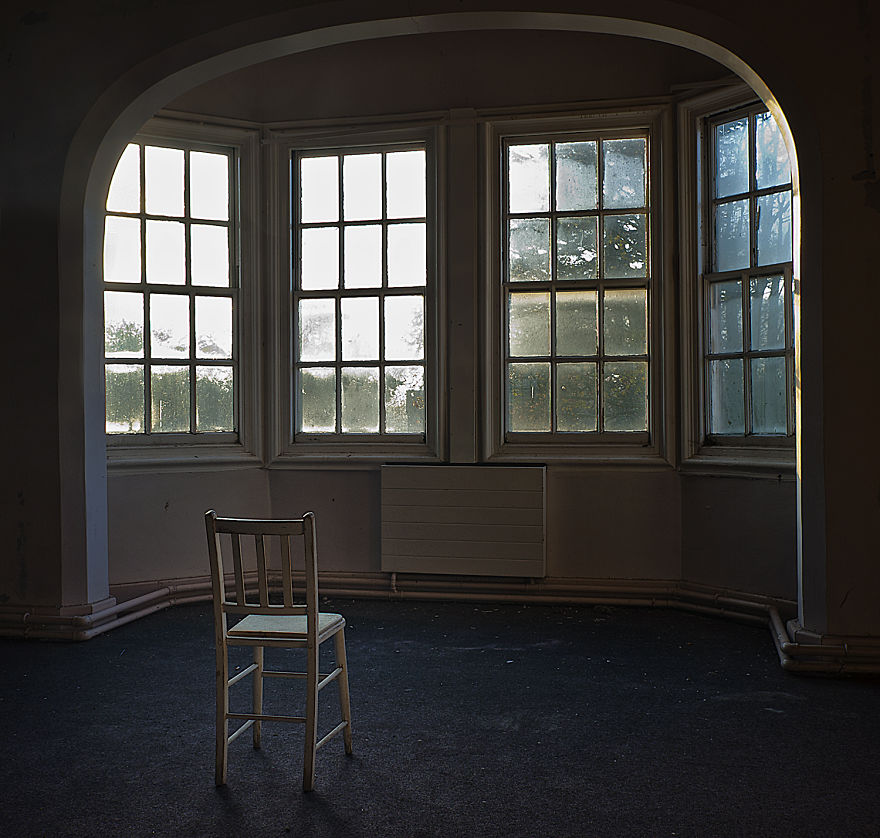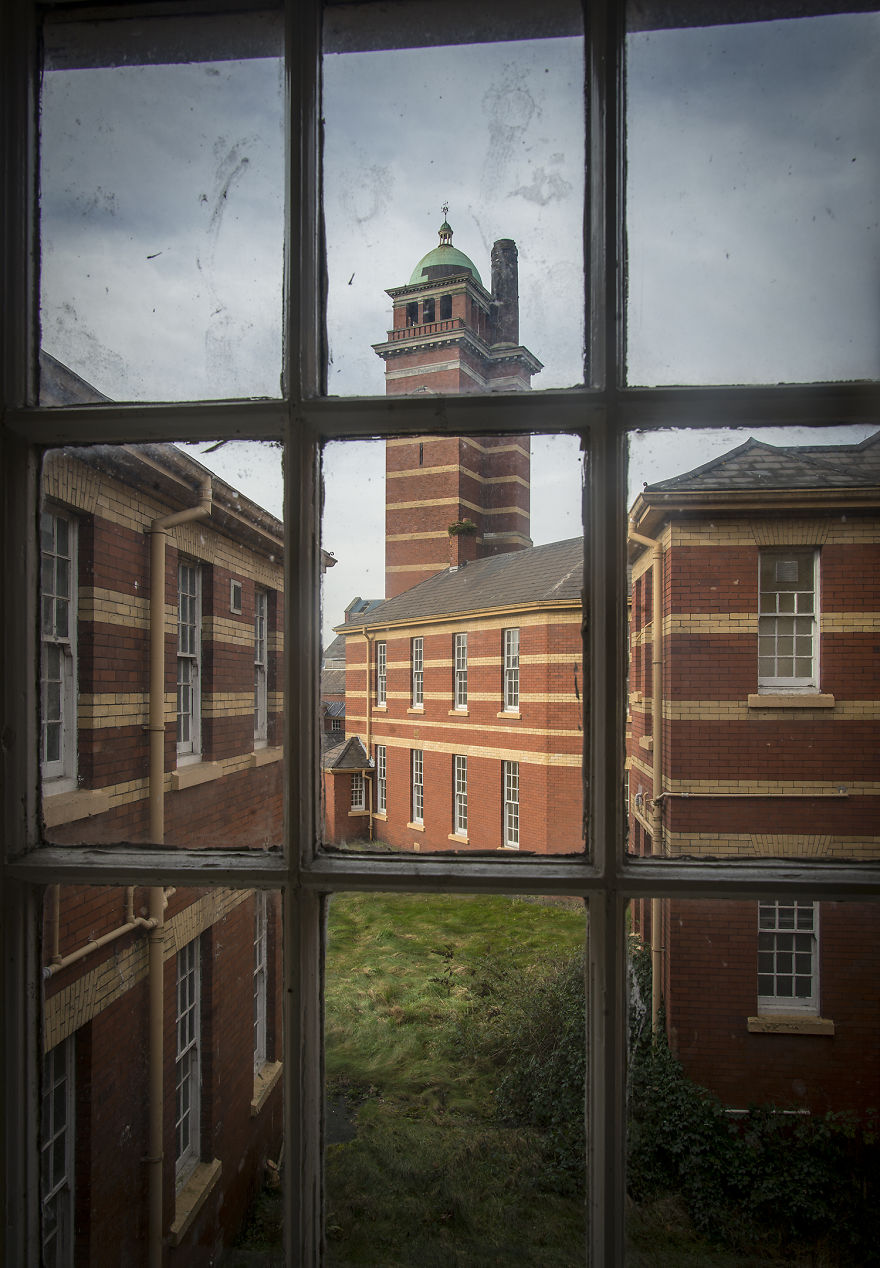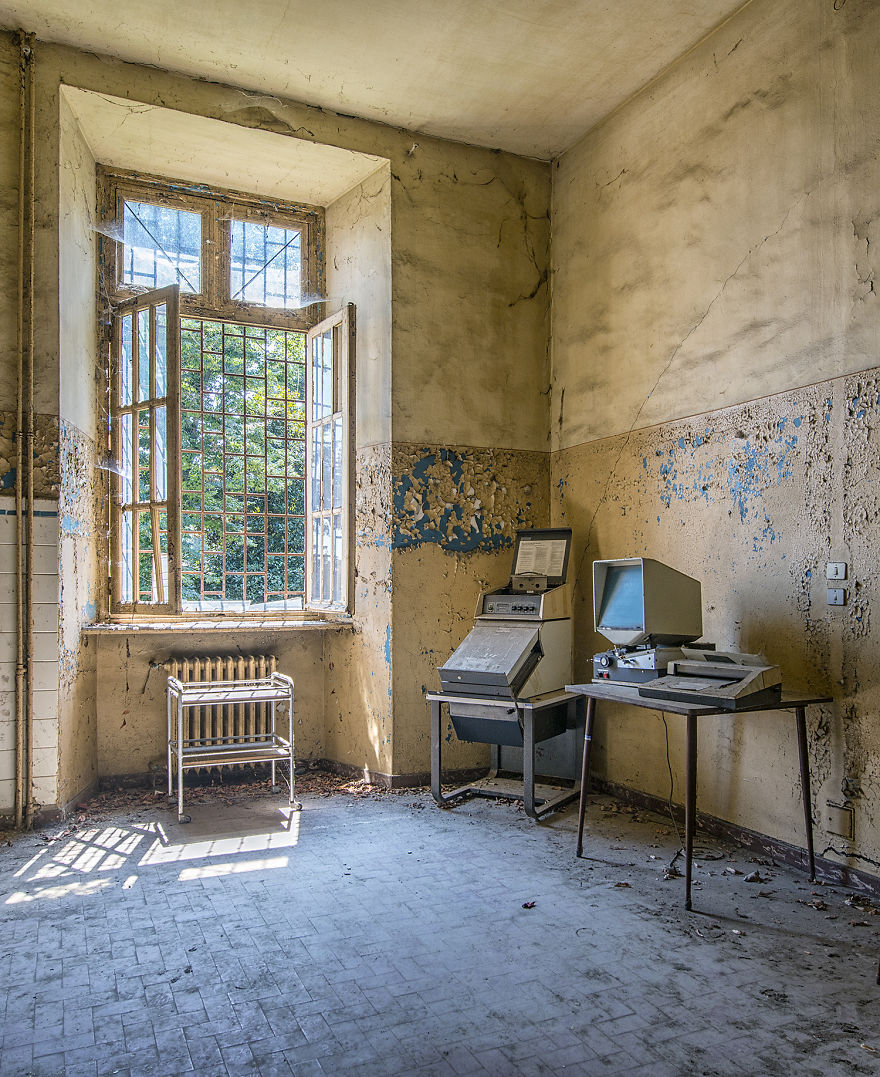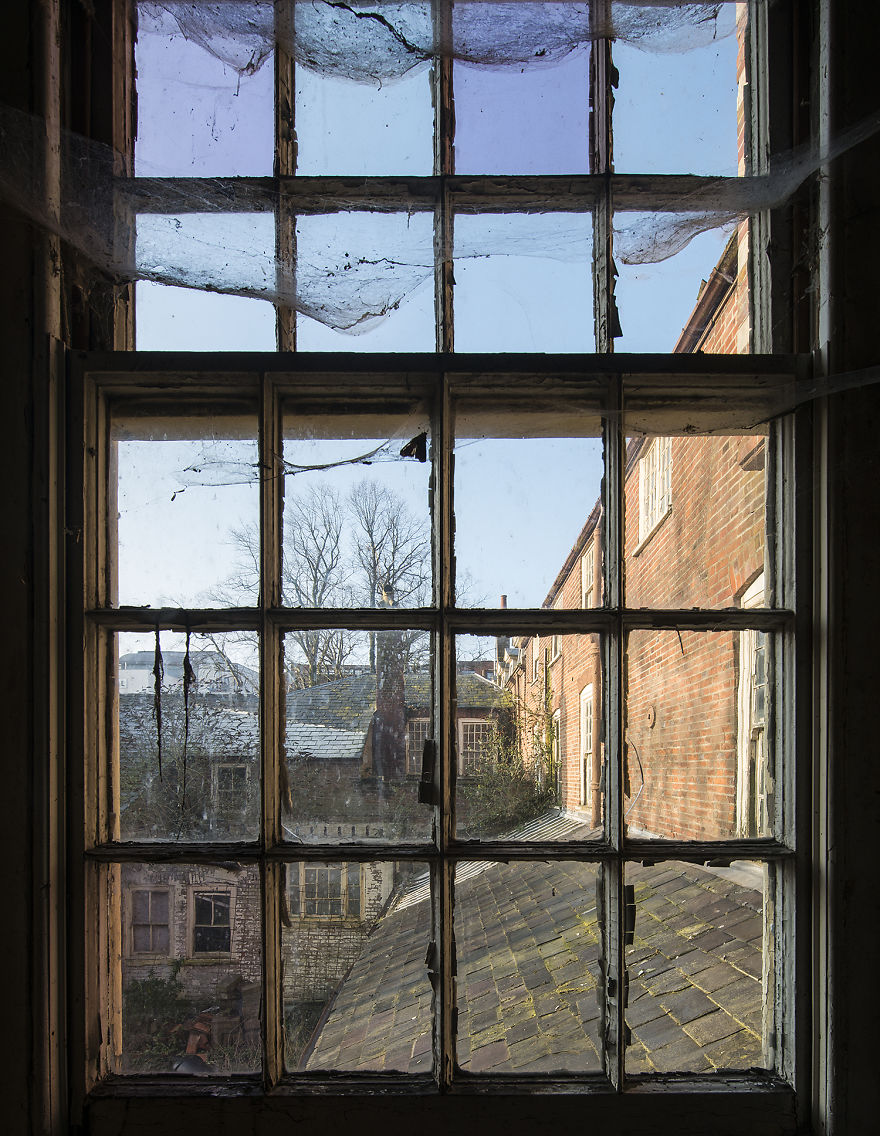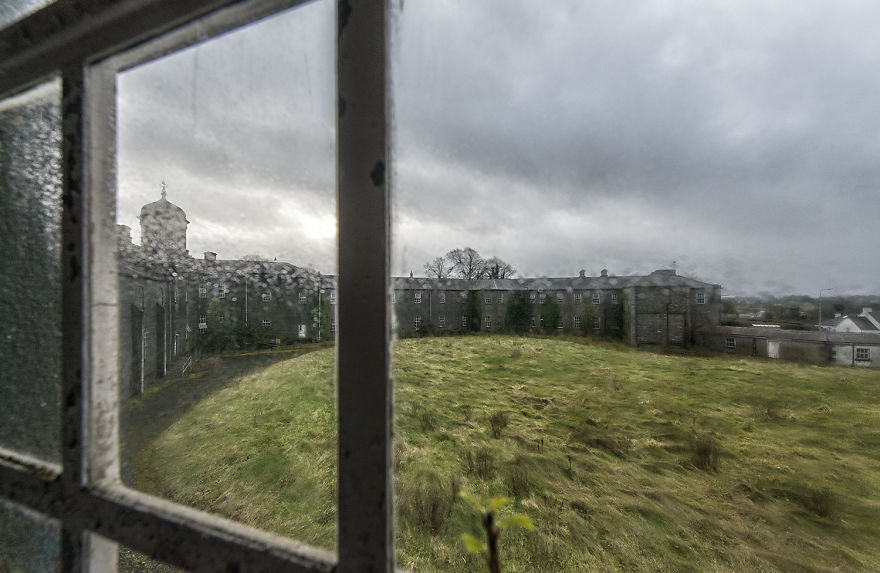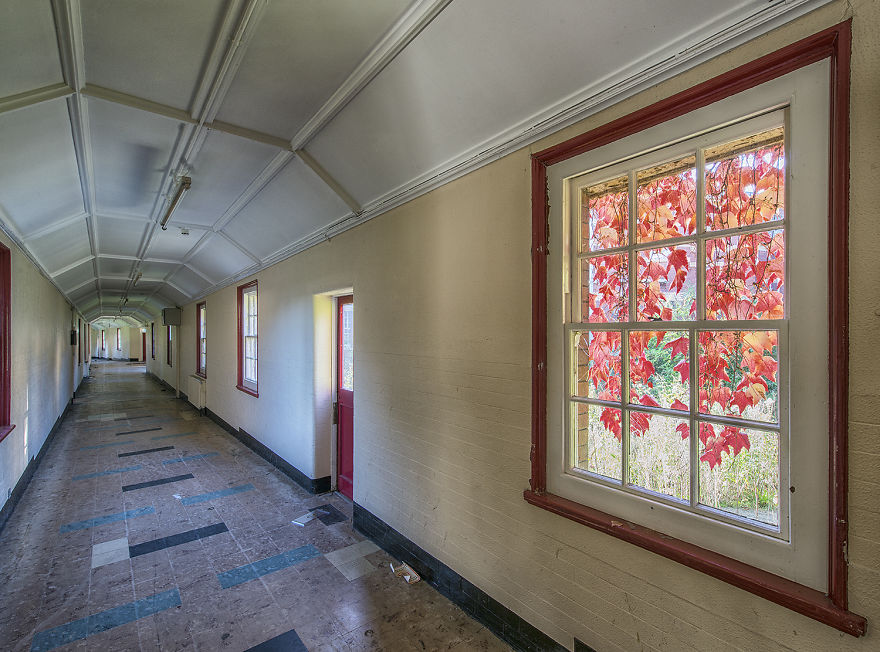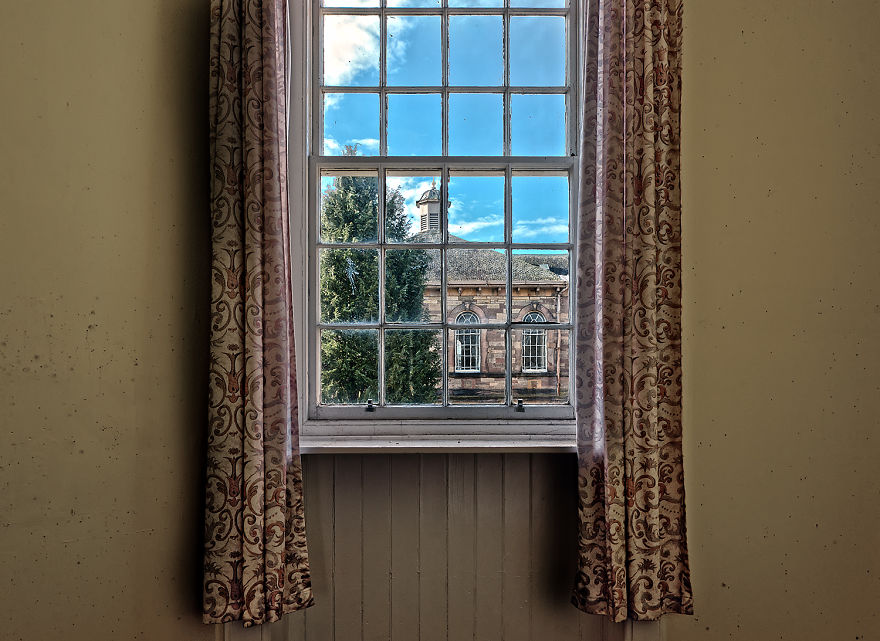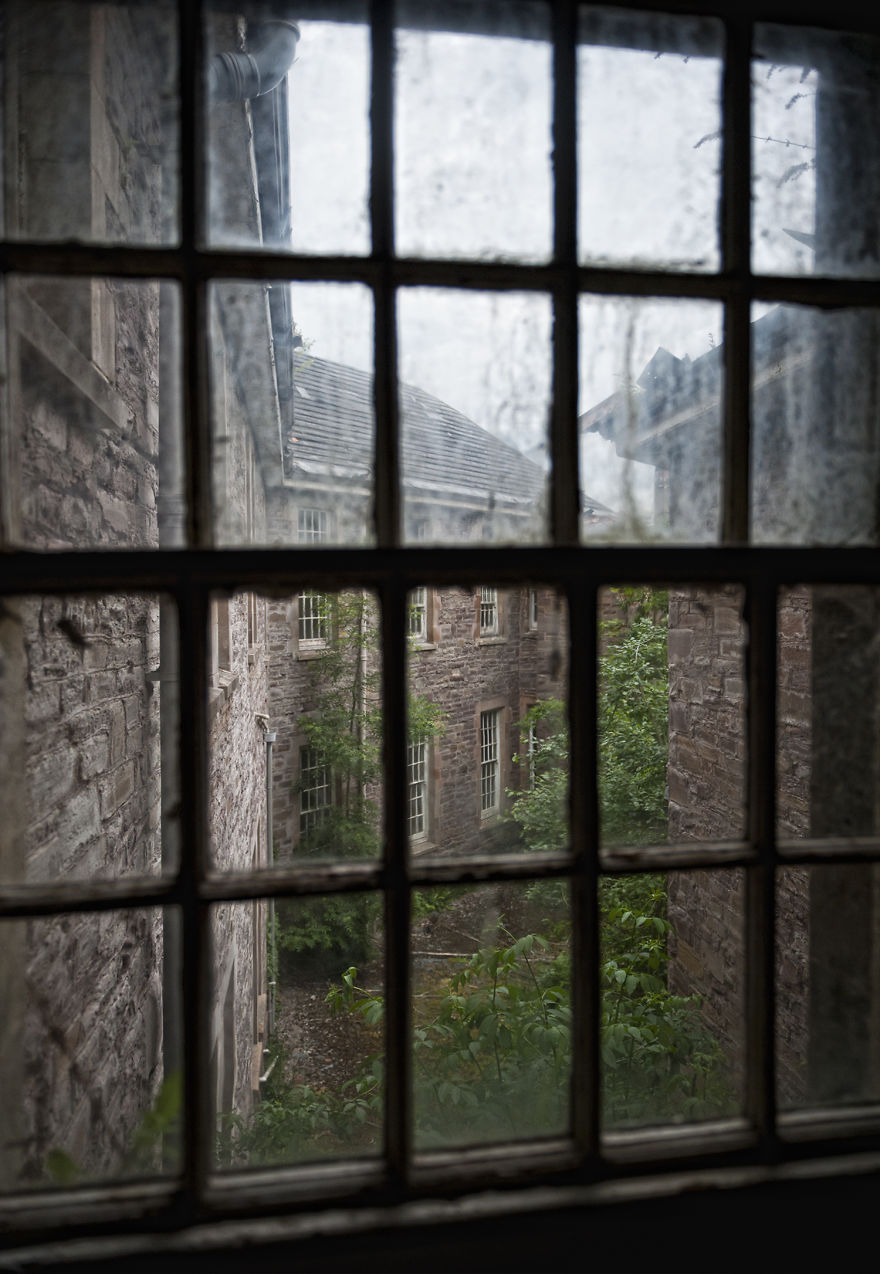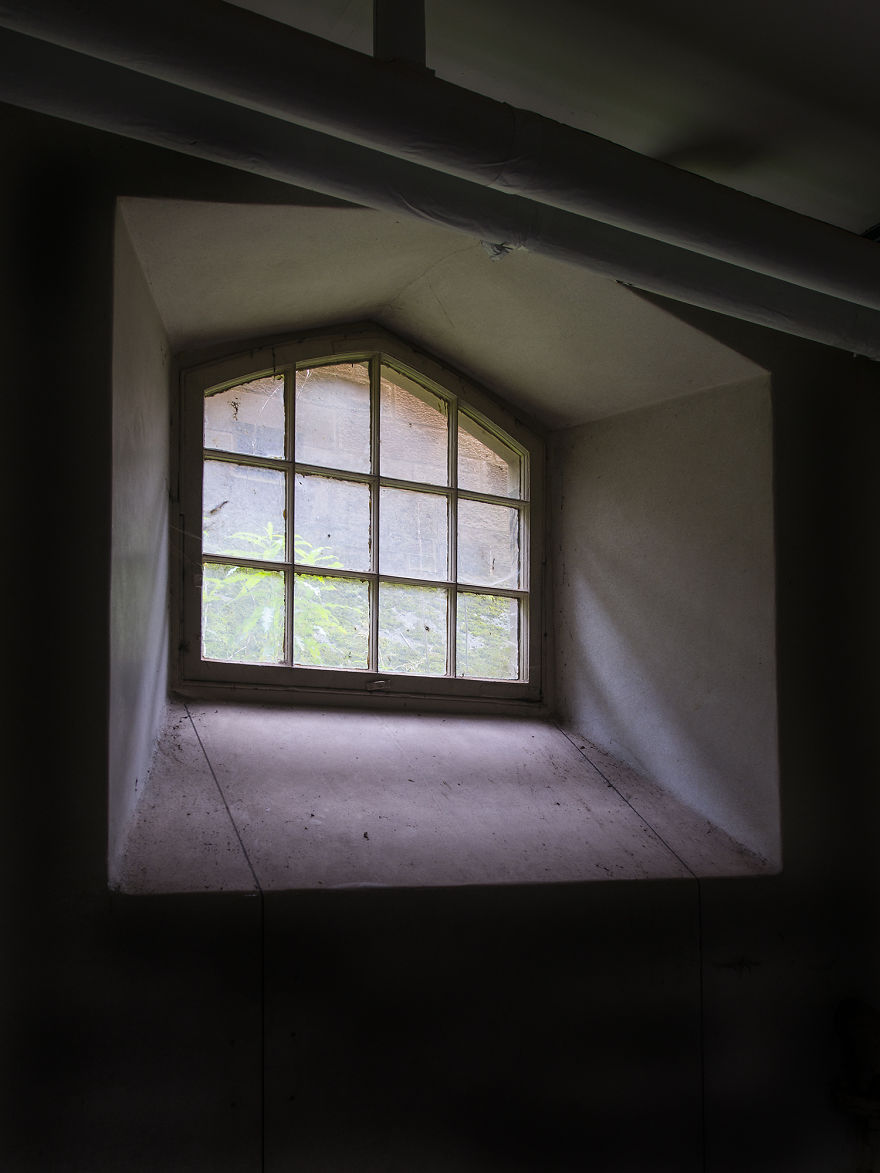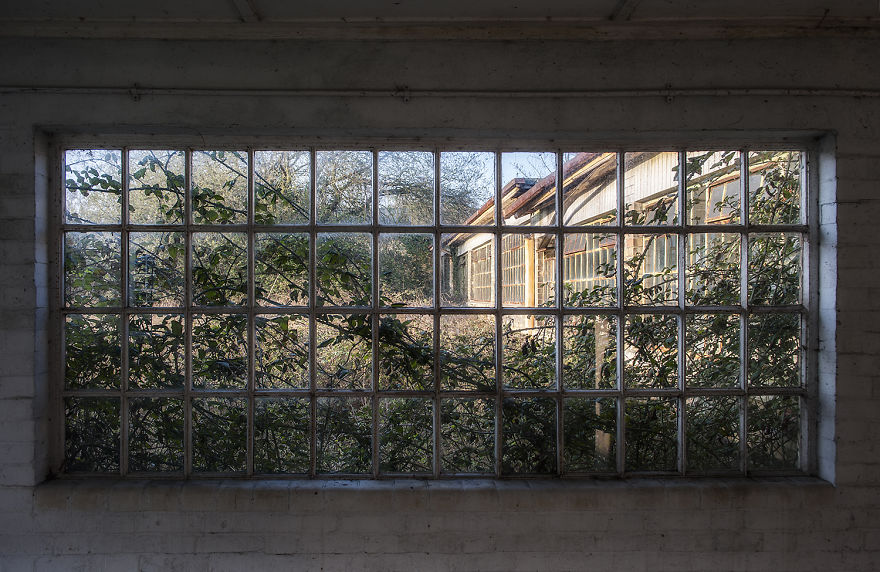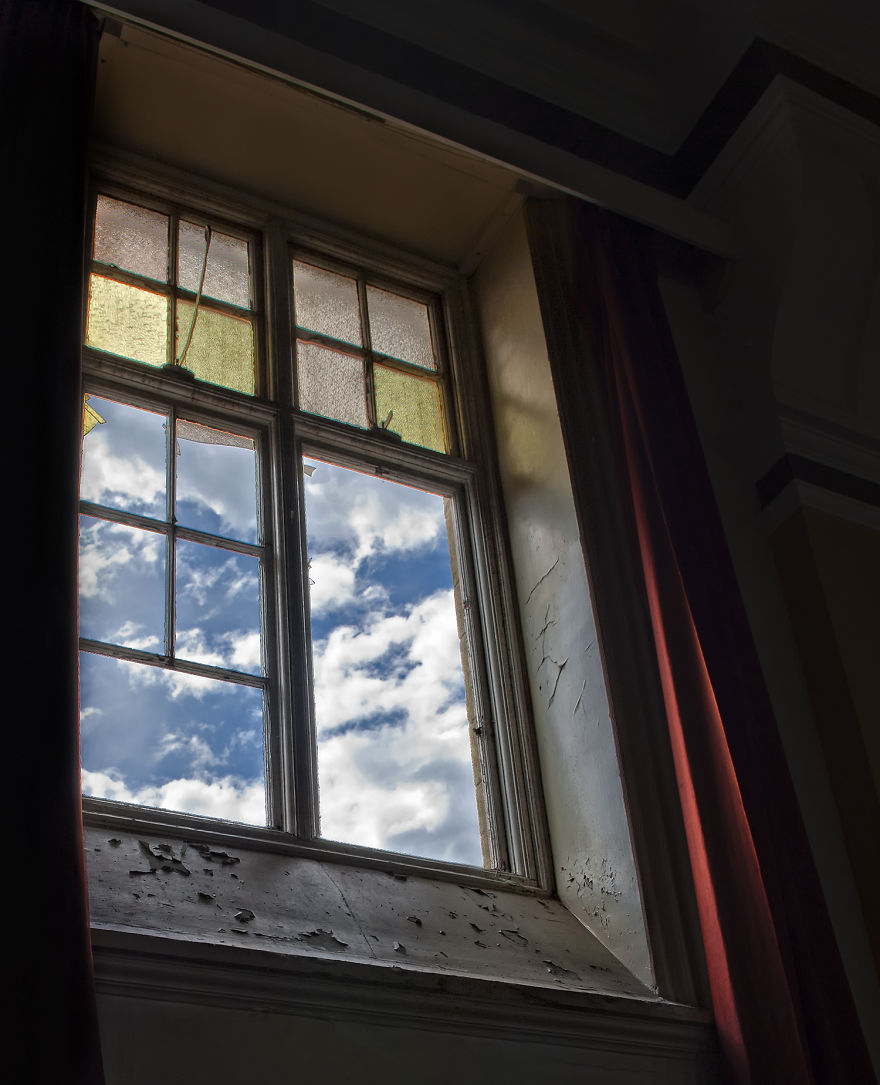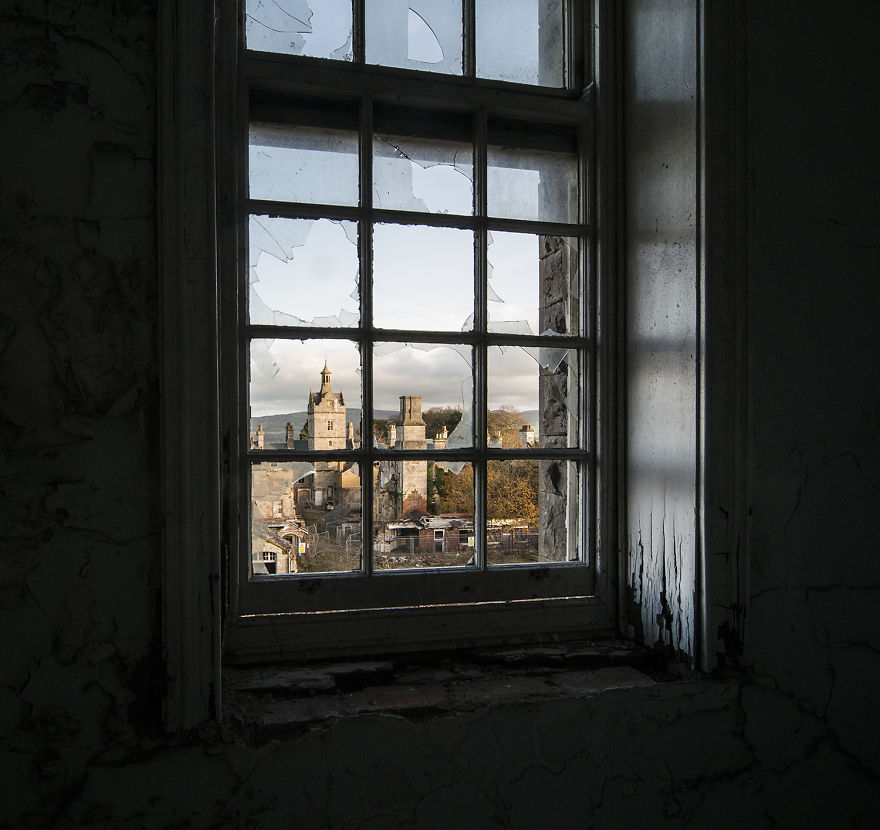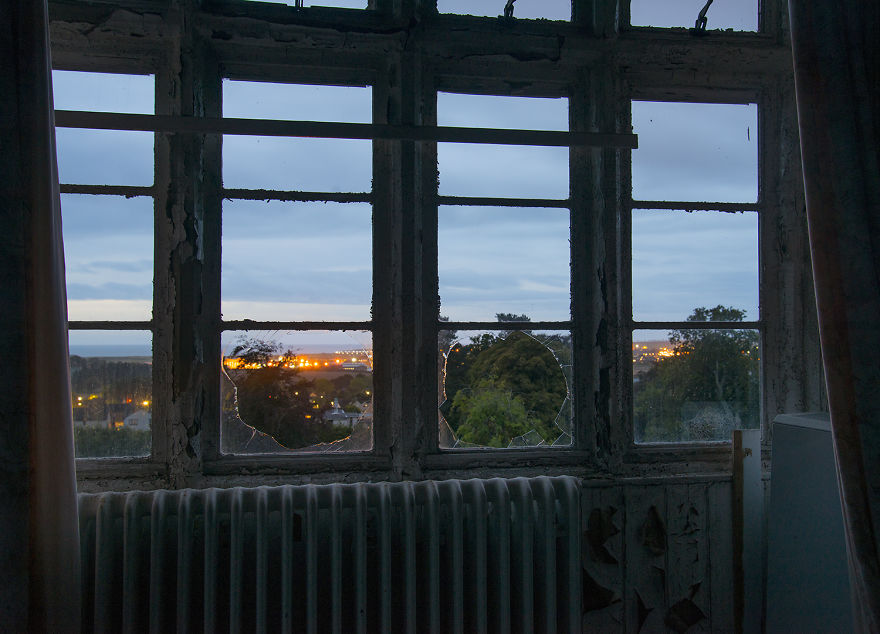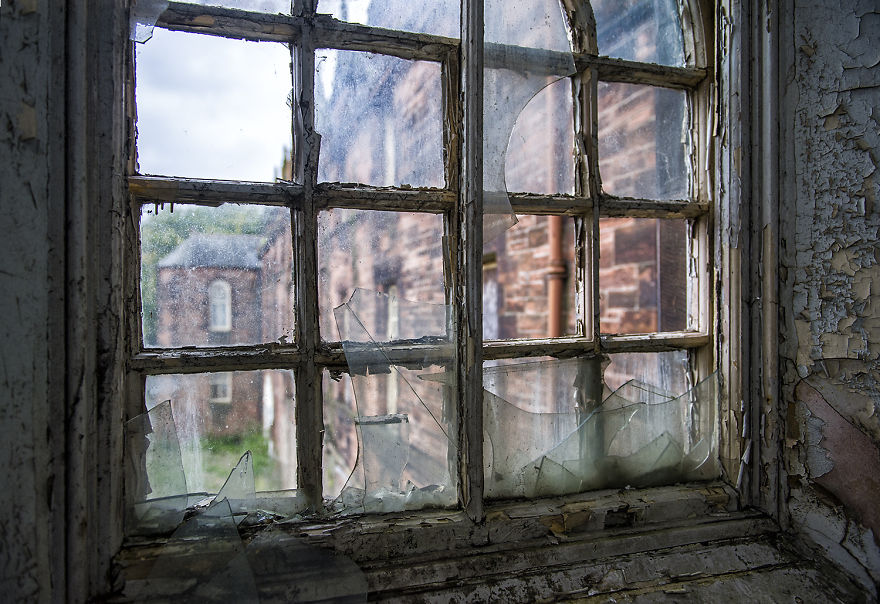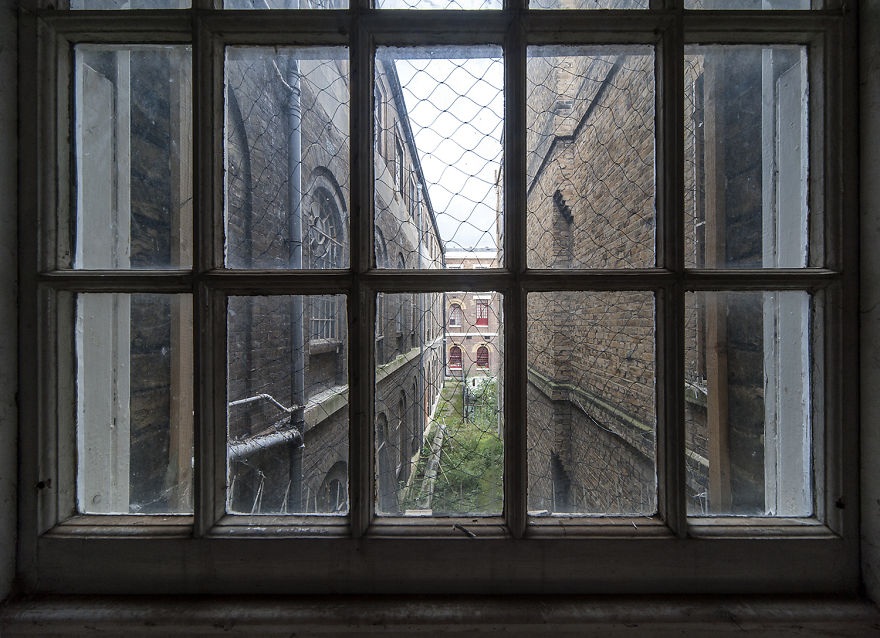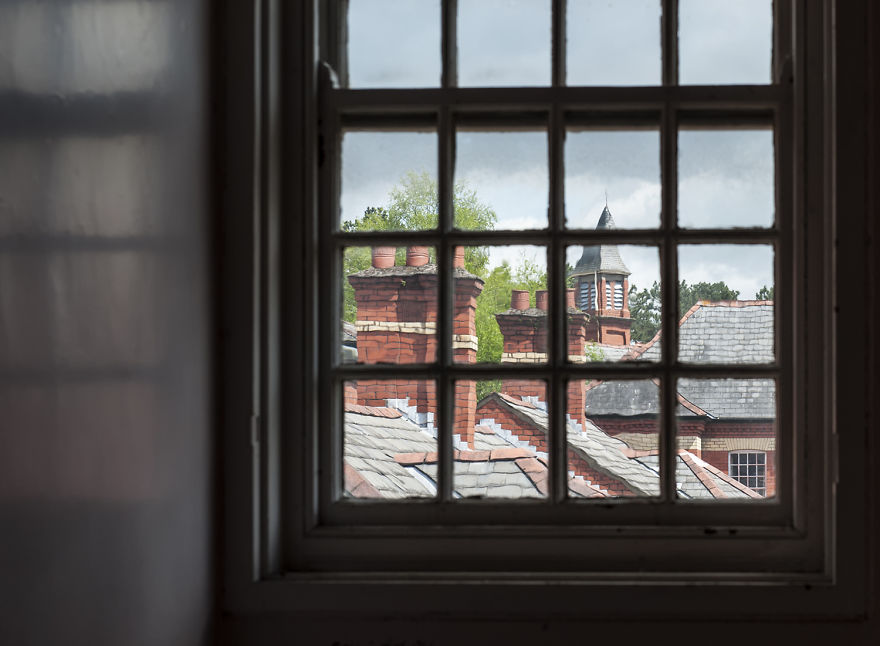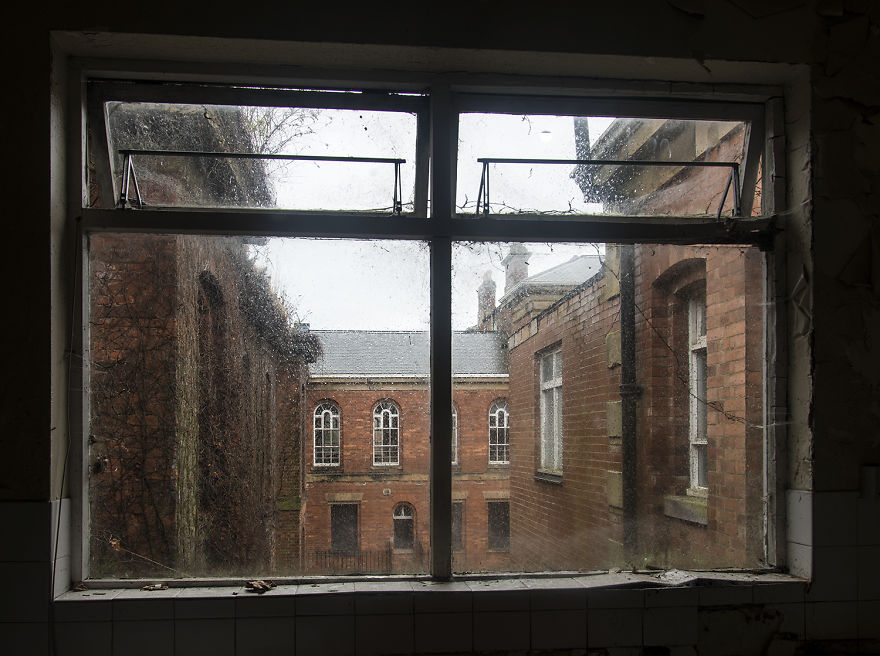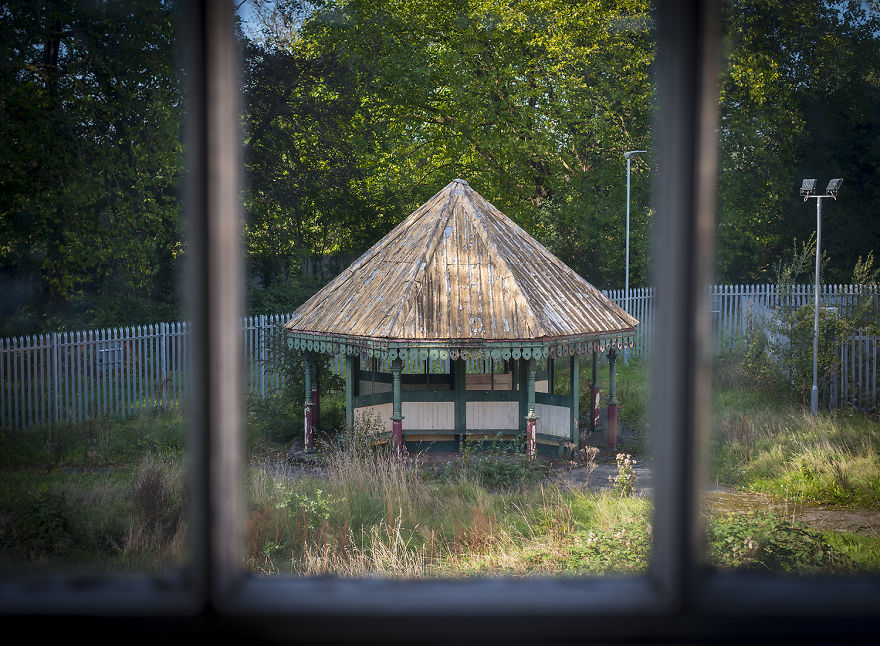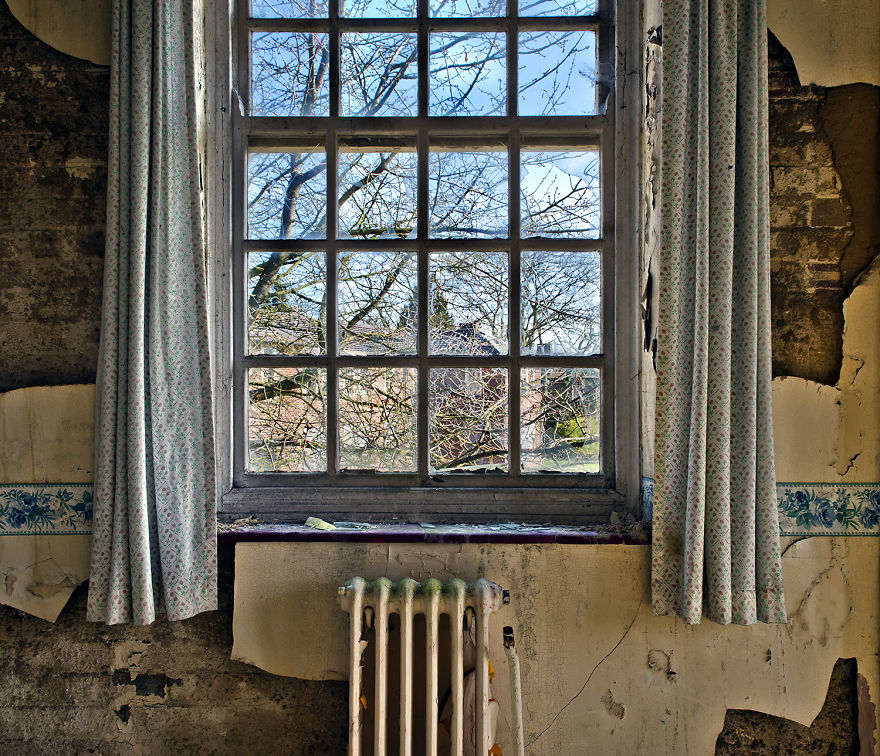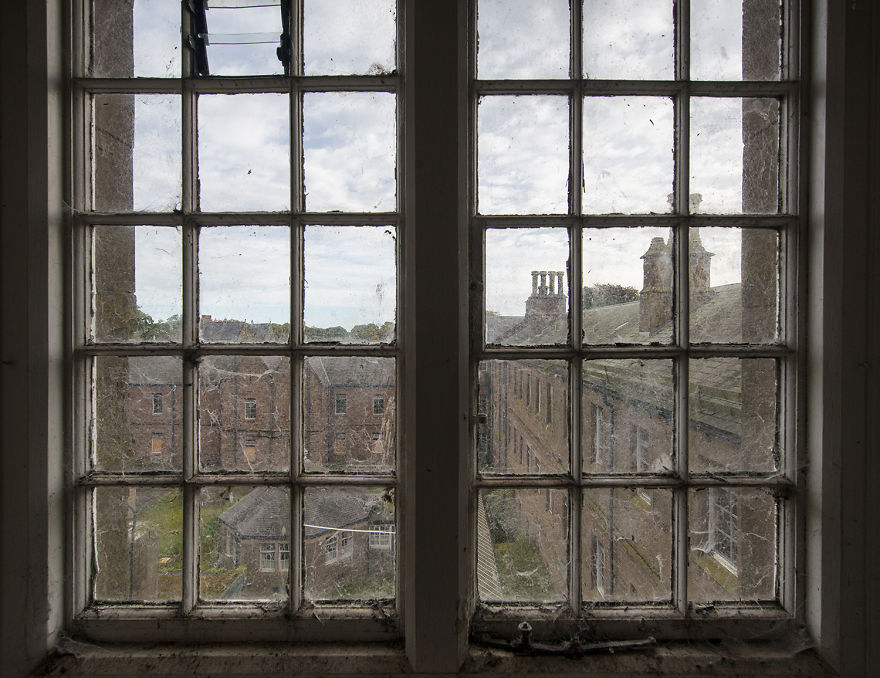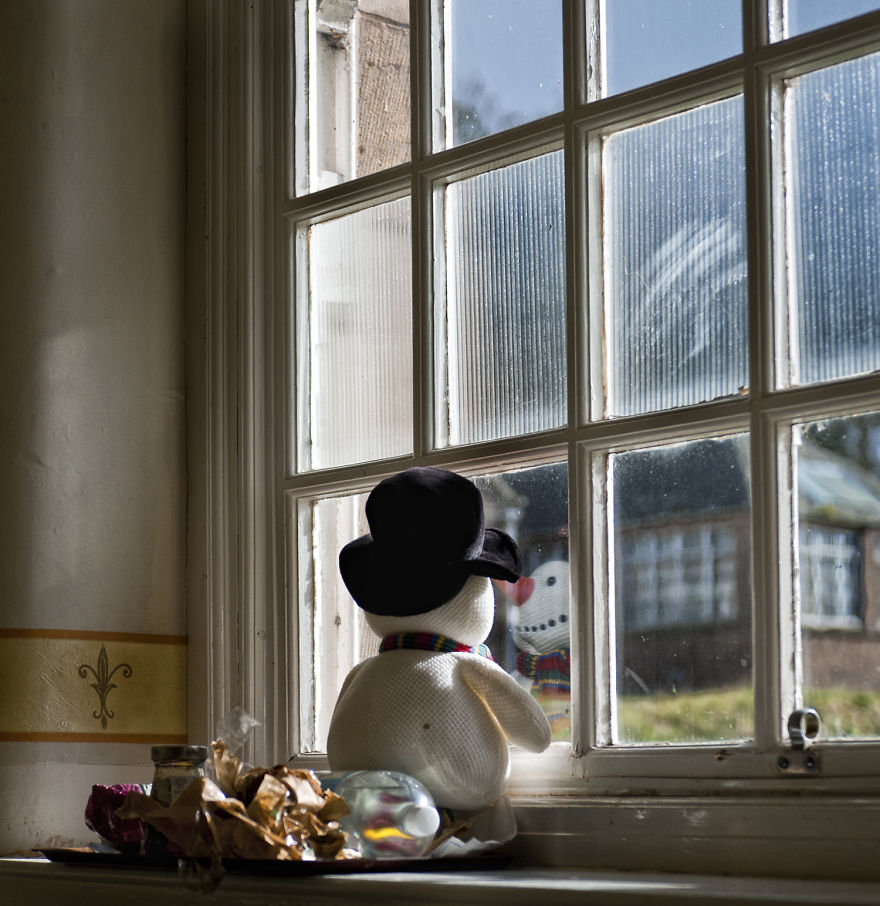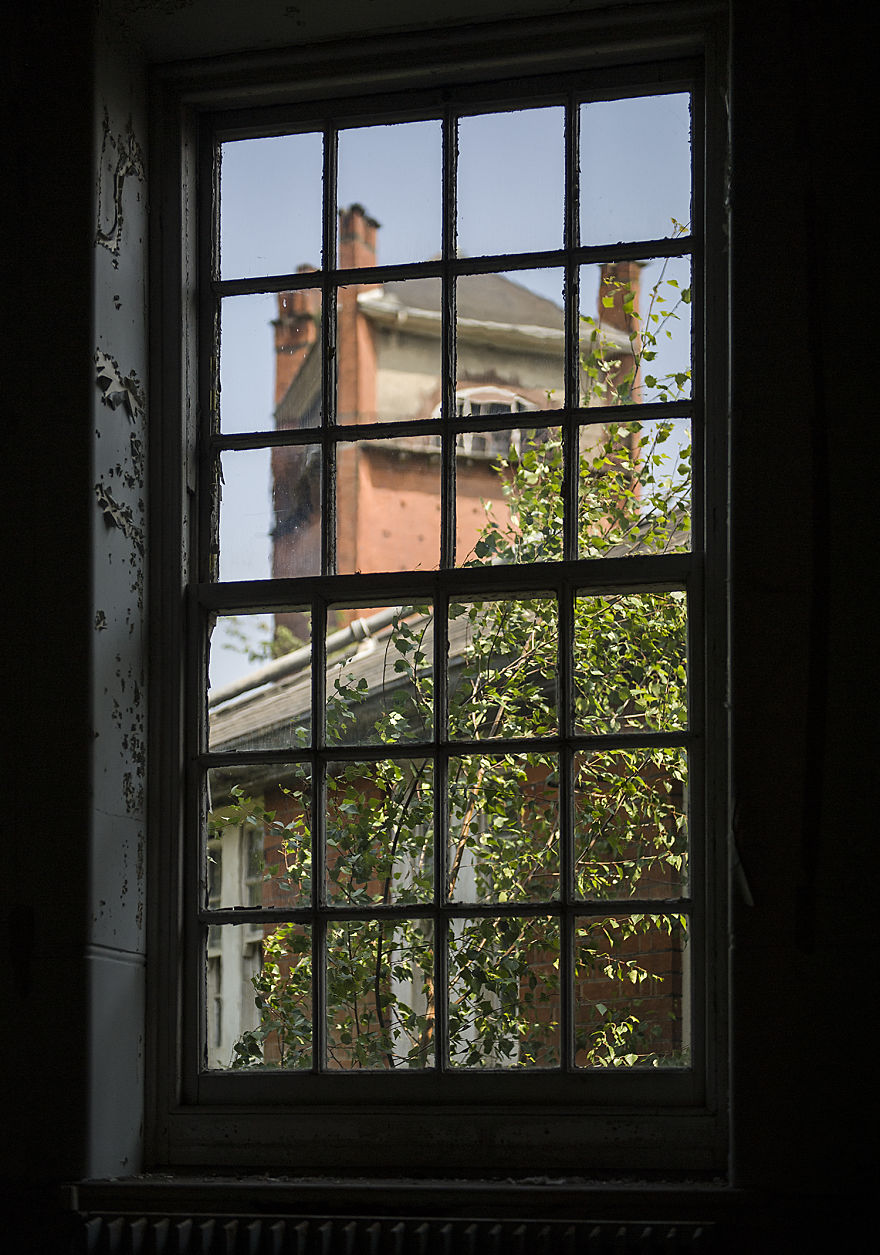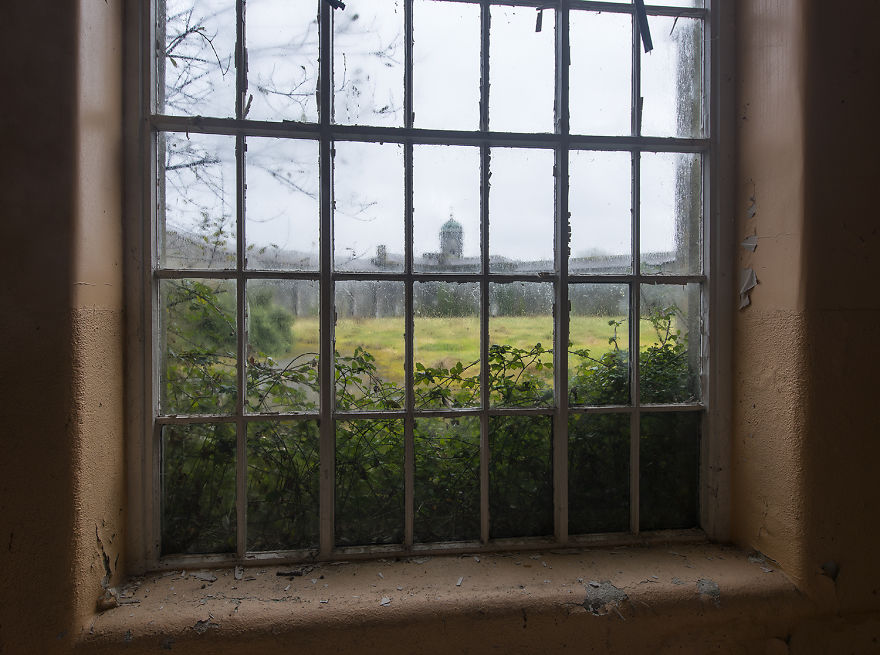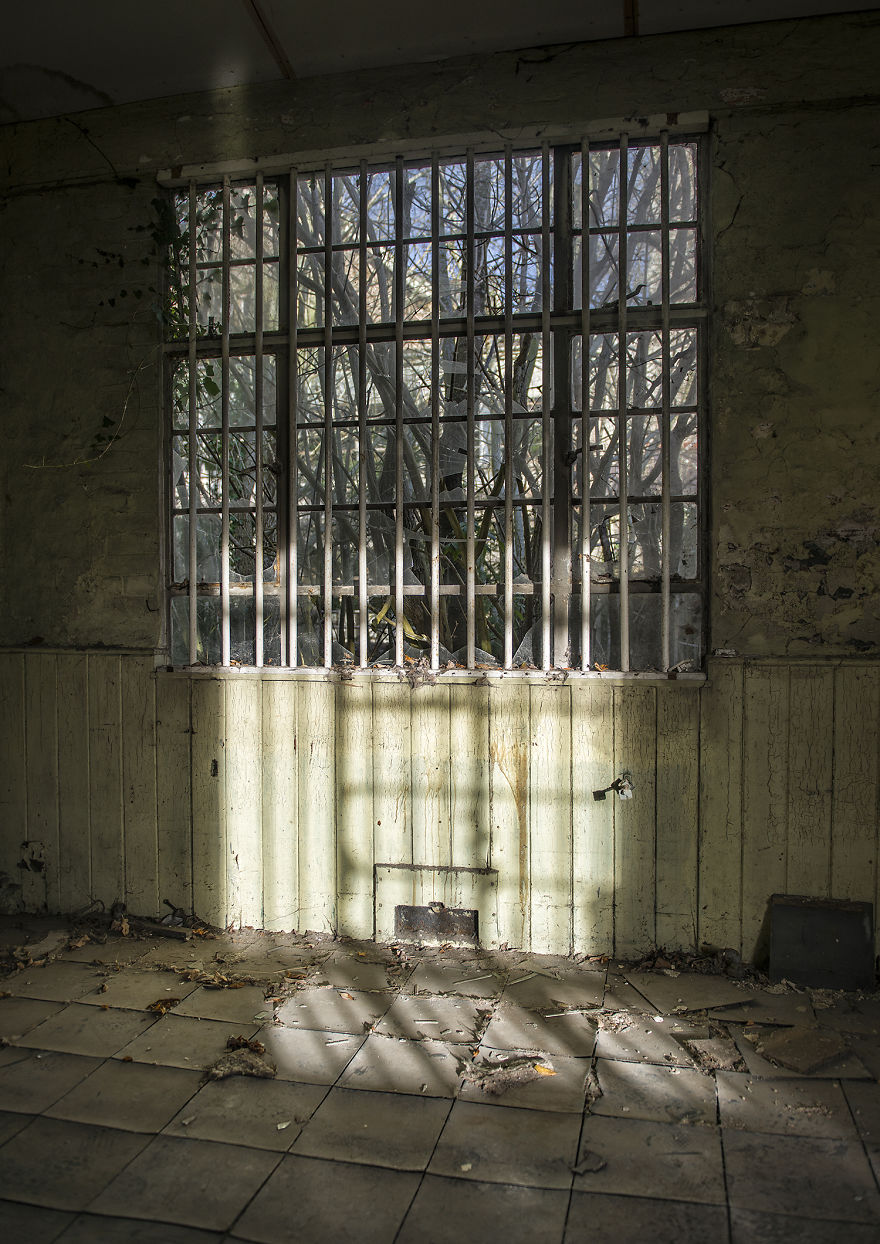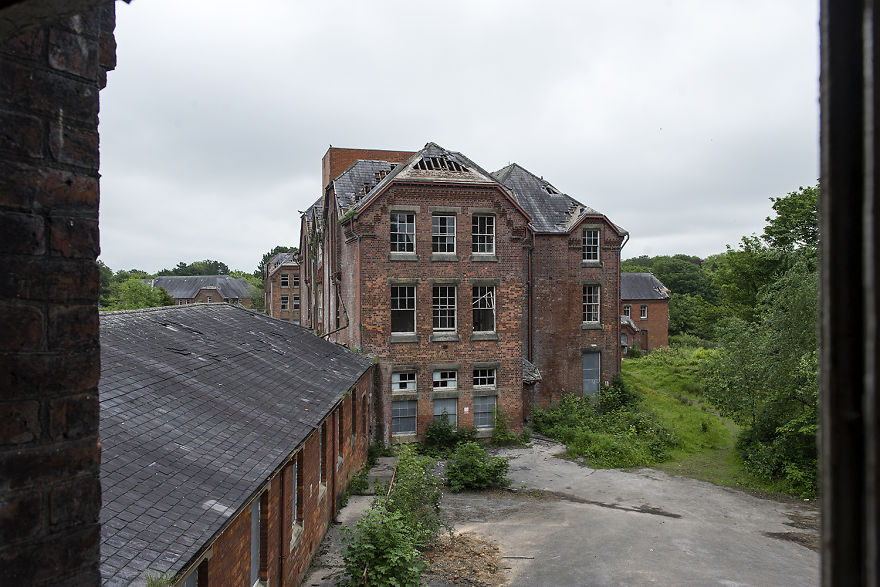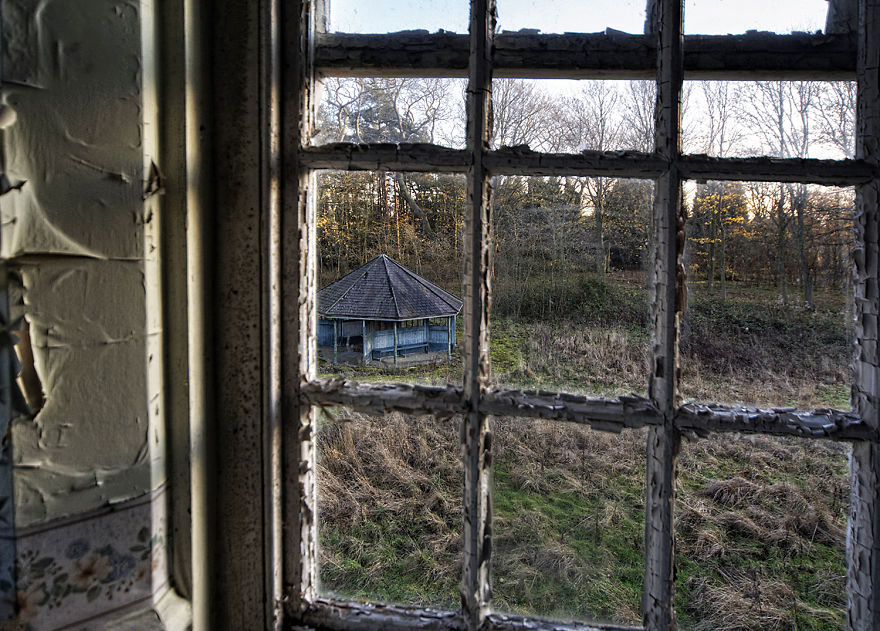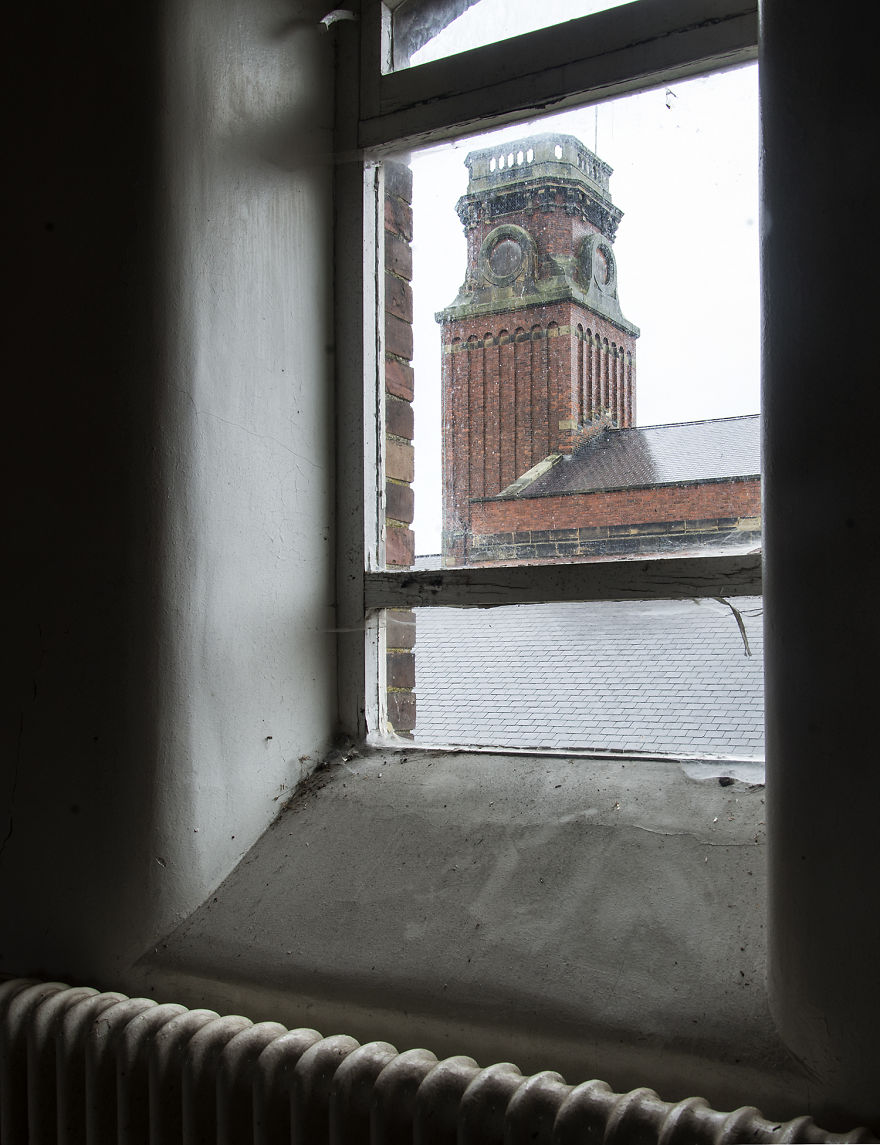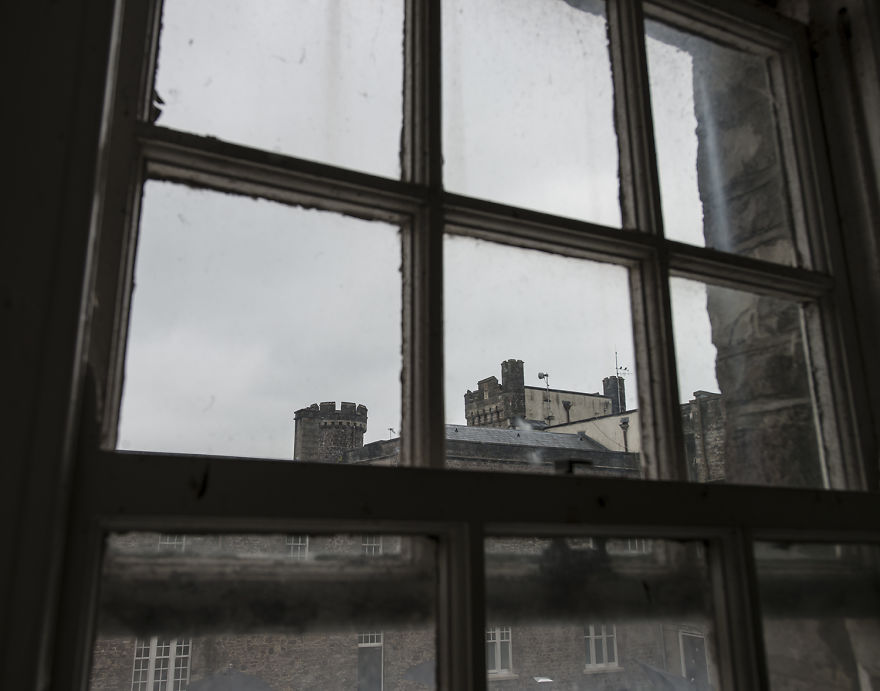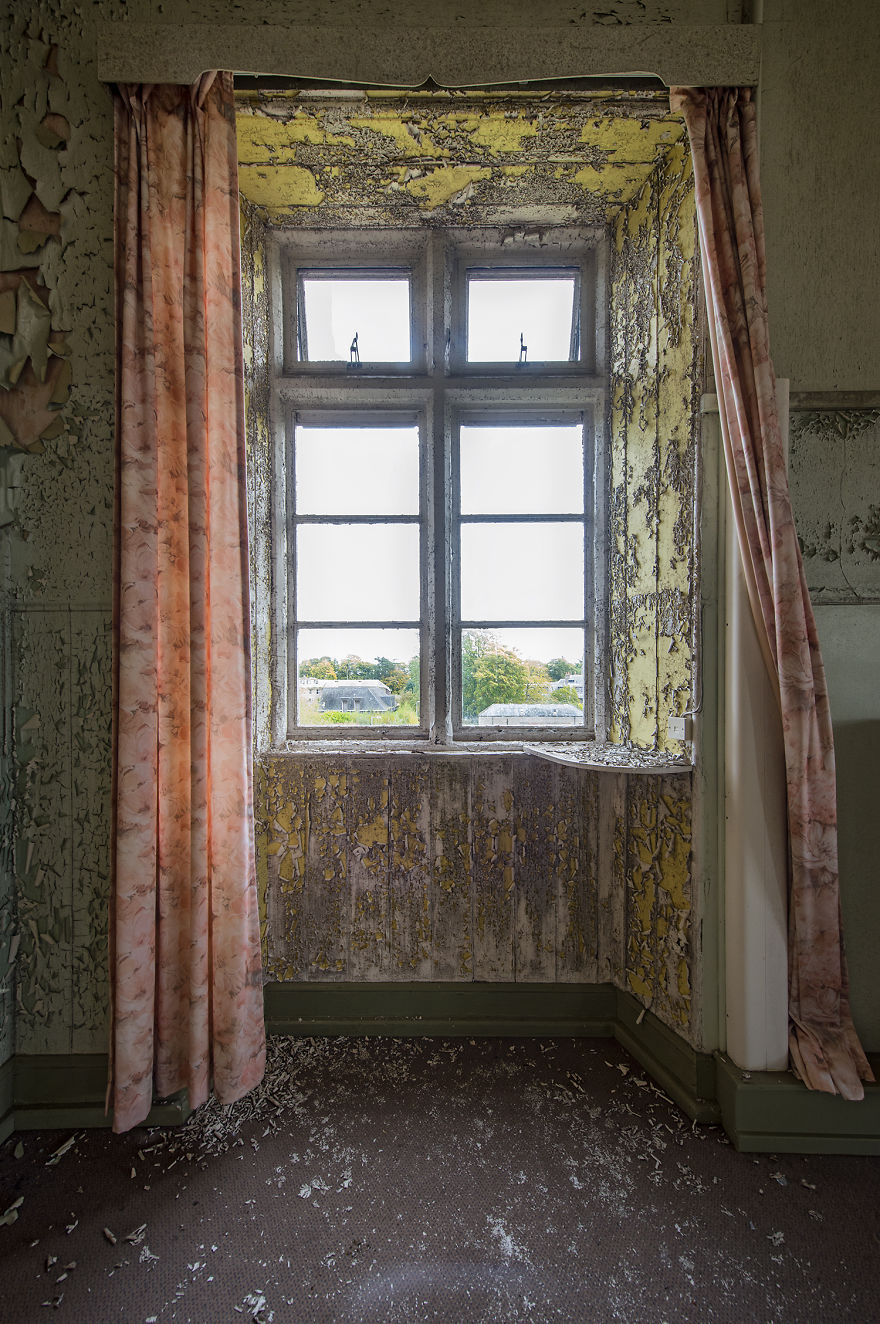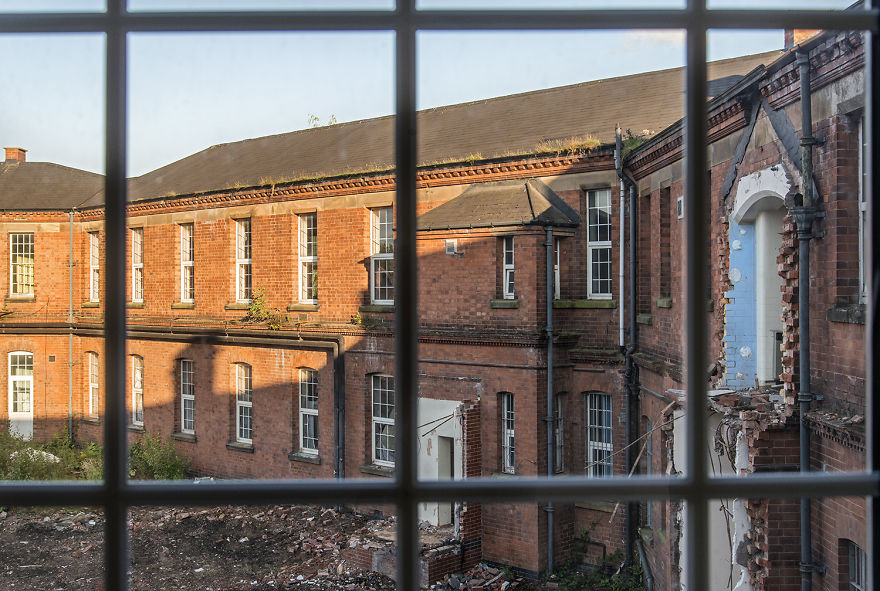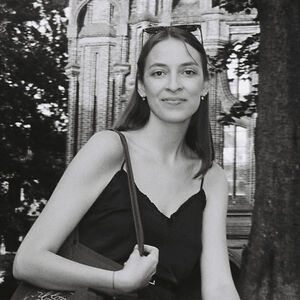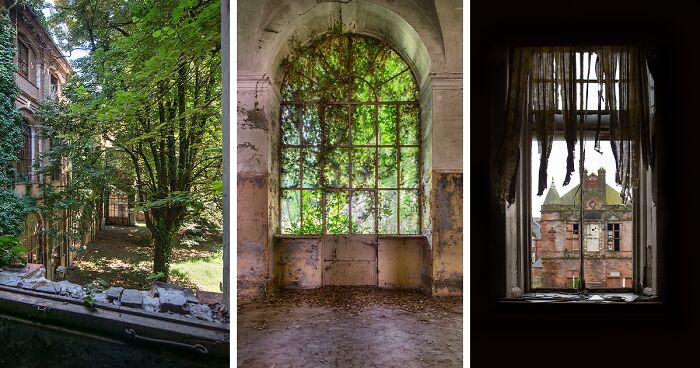
13Kviews
I Explored Abandoned Asylums To Capture What The Patients Would Have Seen Through Their Windows (30 Pics)
I’ve been shooting images of abandoned Victorian and Edwardian lunatic asylums and mental hospitals ever since I was first asked to shoot one single image of the outside of one as an illustration for a book, back in 2008.
The building in question opened in 1852 and had already been abandoned since 1989. While the weather, nature, vandals, and plunderers of various types had already taken their toll on the building, it still stood imposing, defiant and forbidding. Somehow it had managed to avoid the fires, both accidental and deliberate, which had typically put an end to dozens of others as they stood awaiting the final judgment of a society that had once celebrated them as a solution to a whole range of perceived medical, moral and social problems, but was now falling over itself to sweep them away for housing, car parks, and shopping malls.
I wanted to present one of the lesser considered aspects; a collection of views of and from windows in some asylums and mental hospitals in England, Scotland, Wales, Ireland and Italy, built between 1713 and 1937. These were often the moments where I would pause a little longer, forget the photography for a moment or two to just look and listen, and feel, or believe I could feel, just a little more able to stand in someone else’s shoes for a second. And even if in reality, of course, I had no idea how any of the patients themselves felt, the frame and aperture that a window provides meant I knew I was definitely standing in the exact spot and seeing a scene that in some cases was almost entirely unchanged from what they had looked out on, sometimes more than two and a half centuries ago.
This post may include affiliate links.
Looking Into The Central Courtyard
The grand entrances, endless corridors, imposing towers and lavish ballrooms tend to dominate the imagery that we see from asylums after their closure, and understandably so. But while I have admitted my role as something of an inevitable tourist, a passing voyeur in what was, for better or worse (and while it’s completely untrue to say these places were always negative for all of those who lived in them, it’s safe to say it was more often for the worse), not a happy place to be for most, I have always had a respect for those who called these places home, willingly or otherwise, and thought of my reason to be there more as documentation than exploitation.
The Victorians Were Always More Partial To Ivy
A Monastic Design Is Used In This Italian Asylum
These photos span from 2008 to 2019, and the variation in quality reflects that personal journey for me too; many are shots I wouldn’t normally publish as in many cases they were taken without any particular future use in mind (or represent a time when still learning my craft) and being as I say, perhaps less photogenic or striking than many of the other images we expect to see from such locations.
Nature Ignoring The Boundaries Set
Bay Window In A Day-Room
My journey as a photographer started around 2005. I just began playing around with a 35mm film camera and grew to love the feel of an SLR camera. By 2008 I was doing occasional paid photography work, but very small scale. I was asked to take some photos to illustrate a book, and one of these involved obtaining a picture of an asylum in Lincolnshire, England. It had been abandoned for nearly twenty years at that time, and just looked so alluring, mysterious, and compelling from the outside alone that I had to come back and find out what was inside, which I did, a couple of months later.
Ventilation Window Installed In 1831
Glazed Corridors Navigate The Ground Between Wards, Allowing Easy Movement, But Also Constant Containment
My knowledge of these historic institutions at that time was much the same as most, I suppose; it came from films and TV and meant they were places of incarceration and misery, places to be feared in their day and just as much, perhaps even more so, in their gloomy, derelict abandonment. Even the word “asylum”, so caring and maternal when first introduced as an alternative to the pejorative “madhouse” of the 18th and early 19th Centuries, had come to symbolize fear, persecution, horror and the grim concept of long-term, possibly permanent detainment against a human will.
As I explored these places on foot, finding out which were still in use, which were long gone, and which were empty, I learned more about the practicalities and layout of the places from the inside, while soaking up knowledge about their remarkable histories and the ideas which led to their creation when back on the outside.
Tatters, Or Ribbons
December Day
While even the smallest public asylums in Britain were the size of a generous town hall or other big civic building, the largest spanned over a third of a mile end-to-end (around three times the length of Battersea Power Station or wider than the Empire State Building is tall), composed in some cases of more than 27,000,000 bricks and home to well over 3,500 patients and hundreds of staff. These self-contained buildings were designed to provide everything that could possibly be needed (physically, at least) within a single location which could take half a day or more to walk around, without even leaving the same set of buildings, interconnected as they were with walkways, tunnels, and seemingly endless corridors. Some of the later, more spread-out designs were three-quarters of a mile between the furthest wards, leaving staff often resorting to bicycles just to make their daily rounds.
Through The Round Window
A Restive Space
The asylum that left the biggest impression on me was the first I visited, which was St John's at Bracebridge Heath in Lincolnshire (it had been the Lincolnshire County Lunatic Asylum and opened in 1852). It wasn't the biggest, or really the most interesting, perhaps - being mostly cleared and stripped of equipment, etc. - but that's what started me on a mission to photograph as many asylums as possible, and I've shot over eighty of them now, with the most recent being earlier in 2022. Nothing will quite compare to the feeling of venturing inside for the first time.
The Water Tower, Visible From Almost Every Window
Cutting Edge
I think that a lot of us have an innate fascination with ruins: they tell us about who we are, and who we once were. What we collectively or individually aspired to at some earlier stage, and the transient and temporary nature of even the most solid and seemingly permanent things we create.
Obviously, it helps that ruins can often be so photogenic, but much of that attraction comes from their ability to stoke the imagination and inspire a sense of reflection and wonder. They are also often - perhaps surprisingly - very nice places to be, as far away from the noise and bustle of the outside world, often with just the sounds of nature and the creaks of the building itself for company, a place to reflect and wonder.
You also never quite know what you're going to find, even if others have visited the site before, so there's a real sense of uncurated exploration and child-like excitement that is very difficult to replicate in many other areas of life, where so many experiences are tidied up, sanitized, and packaged for us.
One Of The Oldest Institutions In Britain, Dating Back To 1713
An Internal Courtyard, But A Day Like This Would Mean This View Was All You Were Going To Get
I hope you enjoy seeing the pictures as much as I enjoyed taking them, and that getting to see as close as can now be offered to what the people who called these places home would have seen can give you just a little insight into the lives of those hundreds of thousands who almost never got a chance to make their own thoughts and feelings known, being buried so deeply in these initially well-meaning, but ultimately all-consuming institutions.
A Corridor Warmed By Autumnal Leaves
From A Ward To The Recreation Hall
Tightly Packed Ward Blocks
The Worst Cells I Have Seen, These Are Located In The Basement
From One Corridor To Another
The Sky Could Be Anywhere
The Clock Tower, Keeping The Whole Institution Beating To The Same Daily Rhythm
The Lights Of The City In The Distance At Dawn
Strong Windows With Small Panes
Back To Back
Through Ancient Glass
An Internal View Offers Little Vision Beyond Brick And Glass
Looking Towards A Courtyard Shelter - Still Ankle-Deep In Cigarette Butts To This Day
Homely Feel
From On High
I really like the abandoned building photo sets this is no exception. Thanks so much for sharing.
All of these were interesting and some were beautiful. Maybe we should keep in mind that lack of knowledge didn't necessarily mean purposeful cruelty. In the future our treatment of mental illness will probably be looked at as ignorant also.
We are indeed ignorant as hell. We lock people away for life in maximum security prisons who are clearly mentally ill. Killing your wife in a fit of jealousy is criminal, but it's also criminal to lock up someone and s**t on them if they killed because they had voices in their head. Those people need a caring institution. If your brain is not wired correctly, then what are you being "punished" for? Institutionalize them so they aren't a danger to society, but FFS stop treating them the same as regular people who choose to do really bad things.
Load More Replies...Subject matter aside, these were well executed and interesting. Thanks
I really like the abandoned building photo sets this is no exception. Thanks so much for sharing.
All of these were interesting and some were beautiful. Maybe we should keep in mind that lack of knowledge didn't necessarily mean purposeful cruelty. In the future our treatment of mental illness will probably be looked at as ignorant also.
We are indeed ignorant as hell. We lock people away for life in maximum security prisons who are clearly mentally ill. Killing your wife in a fit of jealousy is criminal, but it's also criminal to lock up someone and s**t on them if they killed because they had voices in their head. Those people need a caring institution. If your brain is not wired correctly, then what are you being "punished" for? Institutionalize them so they aren't a danger to society, but FFS stop treating them the same as regular people who choose to do really bad things.
Load More Replies...Subject matter aside, these were well executed and interesting. Thanks

 Dark Mode
Dark Mode  No fees, cancel anytime
No fees, cancel anytime 





